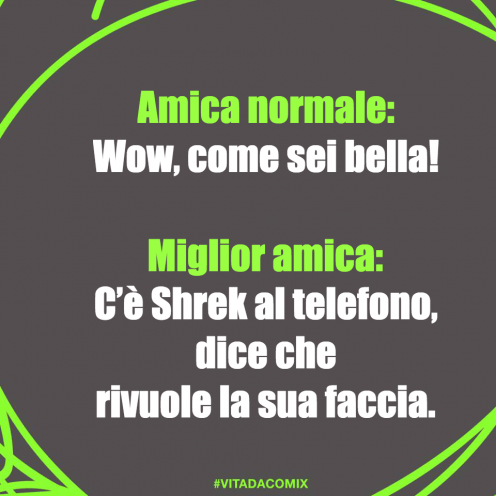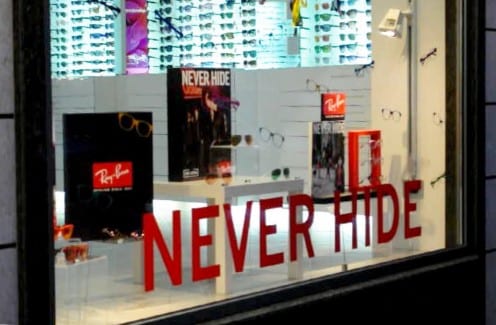What’s special about social media in small places?
By Razvan Nicolescu, on 19 September 2015

‘Normal friend: ‘Wow, how beautiful you are!’ / Best friend: It’s Shrek on the phone, says he wants his face back.’ Meme shared on Facebook by Comix
From the beginning of my fieldwork I kept thinking about why social media seems to be used so differently in my fieldsite – the Italian town of Grano – compared to other places, such as Rome or Milan. Maybe the most immediate answer is that Grano is a small place!
Indeed, with less than 20,000 inhabitants the town is far smaller than many metropolitan place, and here social relations could be much different than elsewhere. But what does this mean exactly? At the same time, social media is known to be a global technology which promises equal chances to access and utilize online resources to all its users. So, what is the implication of this to the existing social relations? To attempt to answer this, I will given a real-life example from my research.
Salvatore is person who is aware of the immense power he has because of social media, but sometimes he is annoyed that he cannot express himself online in the way that he would like. For example, he would never post photos on Facebook which were taken at parties after drinking too much or behaving ‘stupidly.’ His close friends know this, and they too, would never tag Salvatore in a photo they know he wouldn’t like to be published online. On the other hand, Salvatore equally cannot promote himself on Facebook with a nice photo or accomplishment without his friends mocking him for taking himself too seriously.
Salvatore works as an IT consultant for a medium-sized company in Lecce and is renown as a quiet and refined person. In this context, both situations described above would challenge the image people in his hometown have constructed of him. In contrast, he feels that in Lecce he can be a ‘different person’ (un’altra persona) as people there actually encourage this kind of diversity. He commutes to work everyday and sometimes spends whole weekends in the city staying with friends. However, Salvatore is more interested in taking care that Facebook corresponds to the image he has in his hometown, rather than the one he constructs in the city.
What this story points to is how most people in southeast Italy use public-facing social media so that it reflects the relationships and image they have in their home communities. The problem, then, is that this image may vary significantly with social behavior between rural places, small and medium-sized towns and metropolitan places. Writing on these kinds of differences at the turn of the 20th century, sociologist Georg Simmel shows why that what varies essentially is the balance between ‘the objective spirit’ and ‘the subjective spirit.’ That is, in metropolitan places people have to cope with an avalanche of essentially objective issues, from money economy and commerce to mass-produced commodities, which places emphasis on individuality and rationality. In contrast, people living in rural areas, with the slower more habitual, and fewer flows of life, are closer to the ‘spirit’ (or Geist) of people and objects, and, among other things, this allows for more space for subjectivity in social relations.
My ethnographic material cannot really engage with this theoretical proposition as my research was done in a small place. However, what I can agree with is that people in Grano build relationships based on traditions and institutions which incorporate time, a certain predictability and more opportunities to share this ‘spirit’ that are simply unavailable in bigger places. In this context, most people in Grano sense that social media should reflect these very specific local values exactly because they are quintessentially subjective and thus recognizable, before any global forms and tastes.
 Close
Close





